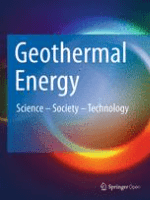
Geothermal Energy
Scope & Guideline
Exploring the depths of geothermal science for a sustainable tomorrow.
Introduction
Aims and Scopes
- Geothermal Resource Assessment:
Focuses on techniques and methodologies for evaluating geothermal resources, including geochemical, geophysical, and geological assessments to determine the potential and viability of geothermal sites. - Thermal and Hydraulic Modelling:
Involves the development and application of advanced modeling techniques to simulate heat transfer and fluid flow in geothermal reservoirs, enhancing the understanding of resource behavior under different exploitation scenarios. - Borehole Heat Exchanger Systems:
Explores the design, optimization, and performance assessment of borehole heat exchangers, an essential component in geothermal heating and cooling systems. - Sustainable Geothermal Development:
Investigates the economic, environmental, and social aspects of geothermal energy production, promoting practices that ensure sustainable and responsible utilization of geothermal resources. - Innovative Technologies and Materials:
Examines new technologies and materials that improve the efficiency and effectiveness of geothermal systems, including advancements in drilling techniques, heat exchange materials, and energy storage methods. - Interdisciplinary Approaches:
Encourages collaboration across various scientific disciplines, integrating geology, engineering, environmental science, and economics to foster comprehensive geothermal research.
Trending and Emerging
- Enhanced Geothermal Systems (EGS):
A growing interest in EGS reflects the need for advanced technologies to exploit geothermal energy in areas previously considered non-viable, focusing on methods to enhance permeability and heat exchange in deep geological formations. - Integration of Machine Learning and AI:
The application of machine learning and artificial intelligence in geothermal studies is on the rise, with researchers exploring predictive modeling, optimization of resource management, and real-time data analysis for improved geothermal system performance. - Geothermal Energy Storage Solutions:
Research on thermal energy storage, particularly aquifer thermal energy storage (ATES) and other innovative storage technologies, is trending as a means to enhance the viability and efficiency of geothermal energy systems. - Environmental Impact Assessments:
There is an increasing emphasis on assessing the environmental impacts of geothermal projects, including studies on groundwater interactions, induced seismicity, and ecological effects, reflecting a broader commitment to sustainable energy practices. - Multi-Objective Optimization in Geothermal Systems:
Recent publications emphasize multi-objective optimization techniques to balance economic, environmental, and technical factors in the design and operation of geothermal systems, highlighting the complexity and interdependence of these considerations.
Declining or Waning
- Conventional Geothermal Exploration Techniques:
Traditional exploration methods, such as basic geophysical surveys or simple temperature gradient studies, appear to be less frequently published as researchers increasingly adopt more sophisticated and integrated approaches. - Low-Temperature Geothermal Applications:
Research focusing on low-temperature geothermal applications has decreased, possibly due to a broader interest in high-temperature resources and enhanced geothermal systems (EGS) that offer greater energy outputs. - Historical Case Studies:
The publication of historical case studies on geothermal projects has diminished, suggesting that the field is moving towards more forward-looking research and innovative solutions rather than retrospective analysis. - Basic Mechanical and Physical Property Studies:
There is a noticeable decline in studies solely focused on the mechanical and physical properties of geothermal reservoir rocks, as the journal's emphasis shifts towards more applied research with direct implications for geothermal energy production.
Similar Journals
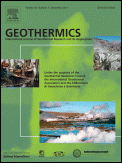
GEOTHERMICS
Unveiling cutting-edge methodologies in geothermal applications.GEOTHERMICS, published by Pergamon-Elsevier Science Ltd, serves as a leading journal in the fields of geology, geotechnical engineering, and renewable energy sustainability. With an established history dating back to 1970, this journal has evolved to become an essential platform for disseminating innovative research and applications in geothermal energy and related disciplines. Its impressive impact factor and consistent performance in prestigious quartiles—currently ranked Q1 in both Geology and Geotechnical Engineering, along with Q2 in Renewable Energy—underscore its significance in the academic community. Although this journal is not Open Access, it provides readers with valuable insights into current trends, methodologies, and technologies that drive the advancement of geothermal science. Researchers, professionals, and students alike will find GEOTHERMICS to be an invaluable resource, fostering knowledge exchange and collaboration in an increasingly important field for sustainable energy solutions.
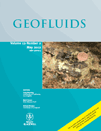
GEOFLUIDS
Unveiling the Dynamics of Our Planet's FluidsGEOFLUIDS, published by WILEY-HINDAWI, is an esteemed open-access journal dedicated to advancing the field of Earth and Planetary Sciences since its inception in 2001. With an ISSN of 1468-8115 and E-ISSN 1468-8123, the journal has become increasingly accessible, allowing for broader dissemination of research findings since adopting an open-access model in 2017. The journal has established itself within the academic community, achieving a Scopus rank of #86 in the domain of General Earth and Planetary Sciences, placing it in the 56th percentile, and garnering a Q3 category classification as of 2023. GEOFLUIDS serves as a platform for interdisciplinary exchange of ideas and findings—encouraging contributions that explore fluid dynamics in geological systems and their implications for natural resources and environmental management. Researchers, professionals, and students alike are invited to contribute to and engage with the latest research in this growing field, further enhancing the journal's role in shaping the future of Earth science research.
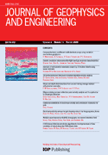
Journal of Geophysics and Engineering
Advancing Geophysical Insights for Engineering ExcellenceJournal of Geophysics and Engineering, published by Oxford University Press, stands as a pivotal platform for the dissemination of innovative research in the interdisciplinary fields of geology, geophysics, and engineering. Since its inception in 2004, this Open Access journal has focused on advancing the understanding of geophysical phenomena and their applications in engineering, receiving a commendable Q2 ranking in multiple categories for 2023, including Geology and Geophysics. With an impressive Scopus ranking reflecting its influence—such as a 143rd position in Earth and Planetary Sciences: Geology—this journal is essential for researchers, professionals, and students seeking to engage with cutting-edge advancements and policy discussions in these critical areas. The journal’s commitment to fostering knowledge and collaboration within the global scientific community positions it as a must-read for those dedicated to furthering geophysical and engineering sciences.
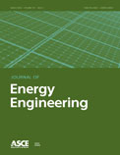
JOURNAL OF ENERGY ENGINEERING
Driving Research in Energy Systems and SustainabilityJOURNAL OF ENERGY ENGINEERING, published by the ASCE-Amer Soc Civil Engineers, serves as a pivotal resource in the fields of civil and structural engineering, energy engineering, and nuclear energy research. With an ISSN of 0733-9402 and an E-ISSN of 1943-7897, this esteemed journal demonstrates a consistent commitment to advancing knowledge in energy systems, sustainability, and waste management. Ranking within the second quartile in several categories—including Civil and Structural Engineering and Energy Engineering and Power Technology—this journal maintains a strong reputation, underscored by its Scopus rankings that place it in the top tiers of its discipline. Accessible from 1982 through 2024, the journal provides researchers and professionals meaningful insights through rigorously peer-reviewed articles, critical reviews, and case studies that address contemporary challenges in energy utilization and infrastructure development. Without open access options, it ensures the integrity and credibility of published work, showcasing influential research that contributes to sustainable solutions in energy and environmental frameworks. Researchers, professionals, and students alike will find the JOURNAL OF ENERGY ENGINEERING an indispensable platform for exploration and dissemination of innovative ideas within the realm of energy and engineering.
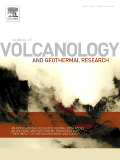
JOURNAL OF VOLCANOLOGY AND GEOTHERMAL RESEARCH
Illuminating the Path of Earth Science ExplorationWelcome to the Journal of Volcanology and Geothermal Research, a premier publication dedicated to advancing the understanding of volcanic and geothermal processes. Published by Elsevier in the Netherlands, this esteemed journal holds a distinguished Q1 ranking in both Geochemistry and Petrology and Geophysics, reflecting its influential contribution to the field. Since its inception in 1976, the journal has served as a critical platform for high-quality research, disseminating cutting-edge findings that shape the discourse surrounding Earth sciences. With an impressive Scopus ranking—27th in Geophysics and 43rd in Geochemistry and Petrology—scholars and practitioners alike regard it as an essential resource for staying informed on the latest research trends. Although it does not provide open access options, the journal remains committed to enriching the academic community's understanding of geothermal energy, volcanic hazards, and related geophysical phenomena, making it a must-read for anyone invested in these dynamic fields.

Geofisica Internacional
Fostering Global Dialogue on Earth’s Energy ResourcesGeofisica Internacional, an esteemed academic journal published by the Instituto de Geofísica at UNAM, Mexico's prestigious National Autonomous University, has been a pivotal platform for advancing the field of geophysics and energy studies since its inception in 1975. This Open Access journal aims to disseminate high-quality research findings, making significant contributions to our understanding of Earth's processes and energy resources. With a current impact factor that situates it in the Q3 category for both Energy (miscellaneous) and Geophysics, it provides a continuous dialogue for researchers, professionals, and students interested in the intersection of these critical areas. Based in Mexico City and publishing articles that span various geophysical disciplines, Geofisica Internacional is indispensable for anyone seeking to stay at the forefront of environmental and energy research.
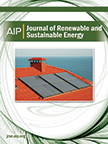
Journal of Renewable and Sustainable Energy
Catalyzing Change in Renewable Energy ResearchThe Journal of Renewable and Sustainable Energy, published by AIP Publishing, stands at the forefront of research in the fields of renewable energy and sustainable practices. With an ISSN of 1941-7012, this journal aims to foster innovative research and exchange of knowledge on sustainable technologies and methodologies that contribute to environmental conservation and energy efficiency. Achieving a prestigious Q2 ranking in the category of Renewable Energy, Sustainability, and the Environment, it ranks 135 out of 270 journals in Scopus, signifying its impactful contributions to the field. The journal, active from 2010 to 2024, provides a platform for authors, analysts, and practitioners to disseminate significant findings that can shape future environmental policies and energy frameworks. Although not currently an Open Access publication, it remains an essential resource for researchers dedicated to advancing sustainable development and energy solutions.
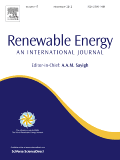
Renewable Energy
Catalyzing Change in Renewable Energy Practices.Renewable Energy is a prestigious international journal published by PERGAMON-ELSEVIER SCIENCE LTD, dedicated to advancing the field of renewable energy technologies and their applications. Since its inception in 1991, this journal has provided a critical platform for researchers, professionals, and students to explore innovative solutions in renewable energy, sustainability, and environmental protection. With an impressive impact factor and ranked in the top quartile (Q1) of its category, Renewable Energy is recognized for its high-quality, peer-reviewed research that significantly contributes to the scientific and professional discourse in the sector. The journal is indexed in Scopus, holding an esteemed rank of #21 out of 270 in its field, underscoring its influence and reach. Researchers can access the journal’s articles through traditional subscriptions, ensuring a broad dissemination of vital knowledge that supports the global transition to sustainable energy sources. Addressed from its headquarters in Oxford, England, Renewable Energy is crucial for anyone involved in the journey towards a sustainable future, fostering collaboration and innovation in a critical area of environmental science.
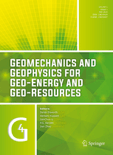
Geomechanics and Geophysics for Geo-Energy and Geo-Resources
Exploring the intersection of geomechanics and geophysics.Geomechanics and Geophysics for Geo-Energy and Geo-Resources, published by SPRINGER HEIDELBERG, is an esteemed open-access journal dedicated to advancing the field of geo-energy and geo-resources. With an ISSN of 2363-8419 and E-ISSN of 2363-8427, the journal welcomes contributions that explore innovative research in geomechanics, geophysics, and their applications in energy and natural resource management. Since its inception in 2015, and now enjoying open access status since 2023, it has established itself within renowned quartiles in several categories, including Q1 in Geophysics and Q2 in Economic Geology, marking it as a prominent platform for high-impact research. The journal is intrinsically linked to the interdisciplinary nature of energy studies, making it a critical resource for professionals, researchers, and students interested in the sustainable harnessing and management of geo-resources. With strong rankings in Scopus, including Rank #25 in Geophysics, it is positioned to offer valuable insights that push the boundaries of understanding in this vital domain.

Acque Sotterranee-Italian Journal of Groundwater
Bridging disciplines for a comprehensive water approach.Acque Sotterranee - Italian Journal of Groundwater is a premier scholarly publication dedicated to the study of groundwater dynamics and its critical role in environmental sustainability. Published by PAGEPRESS PUBL, this reputable journal has been an Open Access platform since 2012, enabling widespread dissemination of groundbreaking research and fostering collaboration within the international scientific community. With an evolving focus that spans from environmental chemistry to geophysics, it is categorized in esteemed quartiles across multiple disciplines—highlighting its relevance in Environmental Engineering, Geotechnical Engineering, and Water Science. Furthermore, showcasing a commendable standing in Scopus rankings, it provides a vital resource for researchers and professionals committed to advancing knowledge in groundwater management and conservation. Operating from Pavia, Italy, the journal's objectives align with promoting quality research and innovative solutions essential for tackling pressing water-related challenges, making it an indispensable asset for scholars and practitioners alike.